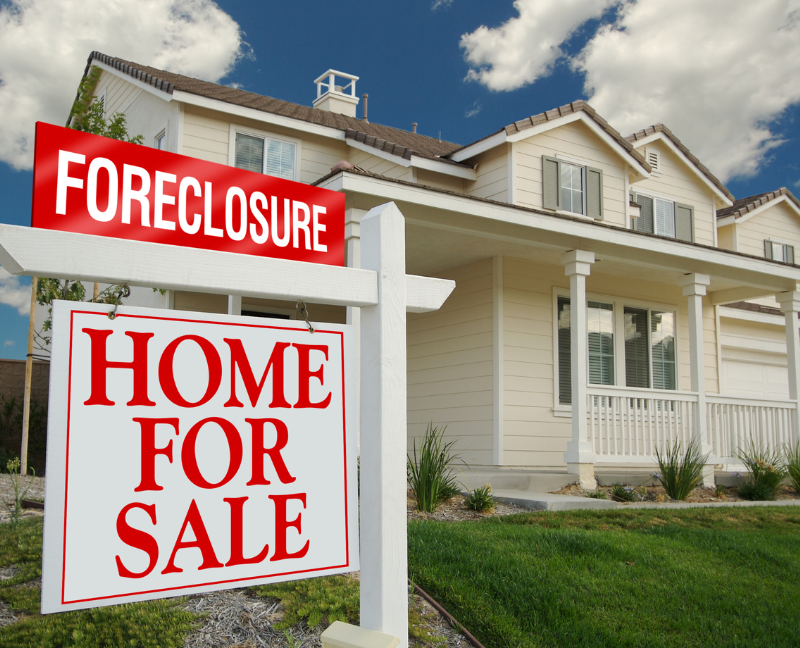Are you considering buying available Indianapolis foreclosures?
Or are you just interested to know what foreclosure homes are about?
Whatever your reason is, we hope that this blog can help you.
In this post, we’ll talk about:
- What Are Foreclosed Homes?
- Types Of Foreclosure Sale
- How To Find Foreclosed Homes For Sale?
- Other Ways To Find Foreclosed Houses
- Buying A Foreclosed Property
What Are Foreclosed Homes?
First of all, you have to understand what foreclosure means.
Foreclosure is when a lender seizes a home. A house that is listed as foreclosed indicates that the lender is the owner.
A lien is placed on a property by every mortgage deal. If a homeowner defaults on their mortgage, a lien enables the lender to take back their property. Homeowners who are unable to make their mortgage payments often face foreclosure.
Purchasing a foreclosed property is different from buying a typically resold house. That is because the foreclosed homes are categorized as distressed properties. With too many options available, prospective buyers could find it a little confusing to decide which house to choose.
If a buyer buys impulsively, he might actually end up buying a property that needs major renovations. Thus, it is imperative to always be more careful and discerning when considering buying Indianapolis foreclosures. On the upside, the price tags of the foreclosed homes could logically be very attractive.
If a buyer gets luckier, he could possibly find and buy a home at a cost that is much cheaper even compared to the actual valuation of the house. Another advantage is that foreclosed homes are mostly vacant before they are put up for sale. This means that any buyer could instantly and easily move in after the sale is finalized.
Types Of Foreclosure Sale
The specific stage of the foreclosure procedure determines where to find a foreclosed property. A bank or the government may still possess properties that are being offered for a short sale or that are in the early stages of foreclosure.
Here are five categories of foreclosures and purchasing strategies for each:
Pre-Foreclosures
When a mortgage lender notifies debtors of their default but before the property is put up for auction, it is said to be in pre-foreclosure. A homeowner may be able to escape an actual foreclosure process and the harm it would do to their credit history and future opportunities if they can sell the property during this period.
Pre-foreclosures are usually registered in courthouse buildings, both municipal and county. Furthermore, pre-foreclosure properties are listed on several websites, such as Foreclosure.com.

Sheriff’s Sale Auctions
After the lender notifies the borrower of default and grants a grace period for the borrower to make up missed mortgage payments, a sheriff's sale auction takes place. The purpose of an auction is to assist a lender in receiving prompt repayment for a delinquent loan.
These auctions, which are overseen by local law enforcement, frequently take place on the steps of the city's courtroom. The location, date, and time of the property auction are made public, and the property is sold to the highest bidder.
Notifications are published online and in regional newspapers.
Short Sales
A lender will take less for a property in a short sale than what is owed on the mortgage. Lenders are not required to approve a short sale in order for borrowers to be in default. But usually, clients have to demonstrate some kind of financial hardship—like losing their job—that will probably lead to default.
Underwater refers to a situation when the home's value is less than the remaining mortgage balance. The house must be offered for sale and the lender must consent to "sell the property short" by taking less than is owing for it to be considered a short sale.
Usually, these homes are listed as "pending bank approval" short sales.
The process of buying a short-sale property is essentially the same as a regular purchase, but the contracts will have different wording indicating that the terms are contingent upon the lender's approval. A short-sale offer may require a bank to react for several months, thus the procedure may take much longer than for a conventional transaction.
It's common to find a real estate website with the ability to search by short-sale status, including listing services and individual businesses.
Bank-Owned Properties
Properties that go back to the bank are those that don't sell at auction. In other words, they turn into real estate-owned (REO) assets.
The institution's REO department frequently oversees these assets. Bank-owned properties can be found in large listings on websites like RealtyTrac, which allows users to search by city, state, or ZIP code.
Government-Owned Properties
Certain residences are bought with loans guaranteed by the Department of Veterans Affairs (VA) or the Federal Housing Administration (FHA) of the United States government. Brokers acting on behalf of the federal agency reclaim these homes from the bank when they go into foreclosure.
Acquiring a government-owned property requires contacting a broker who is registered with the government. A registered broker can be located by buyers on the U.S. Housing and Urban Development Department (HUD)
How To Find Foreclosed Homes For Sale?
Locating foreclosures can be profitable, resulting in real estate fortunes sold for less than market value or diamonds in the rough. These are a few methods for locating foreclosed homes:
- Web And Print Publications: Foreclosed properties are listed in local newspapers, bank offices, online real estate searches, print magazines, and a variety of websites.
- Foreclosure Websites: Using websites like Fannie Mae's HomePath, which specializes in homes and properties in foreclosure, is a more straightforward approach. A few banks, including Bank of America, also have websites where you can look up foreclosed homes.
- Multiple Listing Services: A home's foreclosure status might not be prominently displayed in local multiple listing services; instead, it might merely be included in the property description.
- Real Estate Agents: Never be afraid to question a real estate broker or agent about prospects, as lenders are increasingly selling seized assets through them. Foreclosed homes are even a specialty of some real estate agents.
Other Ways To Find Foreclosed Houses
For those who are unfamiliar with such transactions, it could be a challenge to know where to possibly find and purchase foreclosed properties in Indianapolis.
The first stop should be the local property listings, where there usually are sections for foreclosures. Local government agencies also hold regular biddings for foreclosed or repossessed homes at much cheaper price tags.
Of course, many lenders and banks also sell pre-owned or foreclosed properties. It is ideal to hire a real estate agent, who is more familiar with the market. The professional could take care of the legwork and pave the smoother way to finalizing the transaction. He may also assist in finding and processing mortgages if financing is needed to fund the purchase.
Buying Foreclosed Property
There is a need to meticulously inspect any of the available Indianapolis foreclosures before moving to close the transaction. Most of the time, the price tag is fixed and non-negotiable. If that is the case, the buyer has to agree to the asking price. Once payments are made, all other steps in the process can follow smoothly.
After the sale, the buyer may eventually realize the need for renovations or repairs. At this point, he has no other choice but to shoulder the costs of the activity to improve the condition of the house. Any buyer could opt to live in the house or lease it for rental income.
We hope we helped you understand what foreclosed properties are and what to expect when you purchase them. If you have questions, feel free to drop them below or send us a message!


Your blog is a treasure trove of valuable insights and thought-provoking commentary. Your dedication to your craft is evident in every word you write. Keep up the fantastic work!